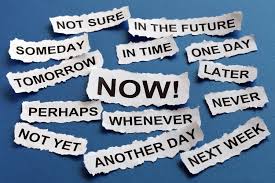Writers write because they are compelled to, because they are crazy, because they want to tell their story, feel that writing is their purpose, their passion and some write for profit. Making money in a shapeshifting industry for writers is always a creative edge. From simply paying the bills to making six figures, most people do not consider grants as coming to the rescue for getting your project off the ground. Rebecca McCray (see her profile at the end of her article) did some serious homework for you so I am passing her article along to add to your file on how to get paid as a writer.

“Writing may be incredibly satisfying, but it’s not a cash cow; most writers do what they do because they love it and couldn’t imagine doing anything else.
When you find yourself with a big, time-consuming writing project to pursue, your love of words alone might not pay the bills. That’s when grant money can swoop in to save the day (and your budget). Here are 17 great grants for writers. Ready to apply for money to fund your writing?
These grants are available to women and transgender artists and writers based in the Delaware Valley region whose work emphasizes social change. That means “social change must be integral to the ideas, beliefs and goals that are woven throughout your [writing] and your process of creating and sharing your art,” and should positively engage the community.
Keep in mind that one key to success for this grant is securing a “Change Partner”: an individual, business, or organization that is connected to your work, and who will endorse your project.
If you are at least 18 years old and live in Bucks, Camden, Chester, Delaware, Montgomery or Philadelphia counties, you are eligible to apply. All genres are welcome. Applications must be received by March 1, 2015, and you can only apply once per grant cycle. Check out this page for all the details.
If you are a resident of Washington state, this is the grant for you.
The Grants for Artists Program (GAP) awards up to $1,500 annually to 50 practicing literary and visual artists. Grant money can support the “development, completion or presentation of new work.”
Applications for the next round of grants will be available in March 2015; check out the details here. The organization also connects artists to an array of services, including career development, legal support, residencies and continuing education (just to name a few).
This writer-in-residence award is an amazing opportunity for an emerging writer over the age of 39 to devote a semester to a fiction project.
The recipient is required to give one public lecture on the campus and to informally meet with Bard students, but the rest of the time is devoted to their writing project. Bard College’s writing program boasts a talented faculty and a beautiful Annandale-on-Hudson campus in New York.
The award is annual, with this year’s project deadline having just passed on July 15, 2014; look for details on the 2015 deadline shortly. The application process is very straightforward; no lengthy FAQ pages here. Applicants should havepublished at least one book, three copies of which must be submitted with a cover letter explaining their next project and their C.V.
An especially generous grant of $50,000, this award is for a female writer in any genre with a true vision for her project. The application is a serious undertaking, but AROHO boasts that the process is a rewarding one, whether or not you end up with the big prize.
This grant period’s deadline has yet to be announced, so starting dreaming and planning now. Take a look at some of the past grantees and their work for inspiration.
If contemporary visual art is your writing area of expertise, you’re in luck. This grant funds writers who are passionate and knowledgeable about contemporary art and whose work will broaden the arts writing audience.
Good news for those who are trying to break into the arts writing field: emerging talent is welcome to apply. Writers can apply for a grant in one of five project types: blog, article, book, new and alternative media, or short-form writing. With prizes that range from $5,000 to $50,000, keep your eye out for the application period to reopen in spring 2015. Details are available here.
This award of $2,000 or $6,000 stands out from the crowd by specifically supporting artists and writers with at least one child under the age of 18. The foundation strives to support parents who are trying to balance their creative work with the demands of child rearing.
Interested applicants should submit a sample of their work (maximum 25 pages), along with the answers to the questions found here. The fall deadline is September 8, 2014. Writers with kids might also want to keep an eye on this foundation’s work funding organizations that are trying to make their residency programs more parent friendly.
If you’ve been working as a writer for at least five years, Creative Capital’s individual awards for “Artist Projects” might be for you. They aim to support working artists (in film, visual and performing art, emerging fields and literature) through funding and career development, based on a venture-capital model with the goal of helping grant recipients build sustainable artistic practices.
Projects receive between $10,000 and $50,000. Past literature recipients includeRebecca Solnit, Ben Marcus, Sharifa Rhodes-Pitts, and Alan Gilbert. Applications for Literature Projects will be accepted from February 2 to 28, 2015, and winners will be announced in 2016, so you have plenty of time to get organized.
Check out an online info session and this page for details on the application process. Note: applicants must also be over 25 years old, legal permanent residents of the United States and cannot be full-time students.
Arizona writers who are “pioneering new works” may want to try their luck with this grant, awarded to 10 to 12 artists across disciplines each year. The grant’s amount goes up to $5,000 depending on funding, though last year the average award was $3,500.
Applicants whose projects emphasize the “new” — new methodologies, new strategies, new ways of engaging readers — are primed for success. Writers should also explicitly state in their applications how their project will impact not just their own artistic practices, but also the larger Arizona community. The application has numerous demanding parts, so be sure to give yourself time to delve into the guidelines and meet the September 18, 2014 deadline.
In honor of New York restaurateur Elaine Kaufman, the Table 4 Writers Foundation offers funding to New York City-based fiction and nonfiction writers.
Kaufman was known for opening the doors of her Upper East Side restaurant to established writers as well as those who were waiting for their big break, sometimes even picking up the tab when they were low on cash. The grant upholds this spirit by supporting promising writers aged 21 and older with grants of $2,500.
Applicants must provide an unpublished writing sample that somehow addresses New York City and an explanation of how the grant will further their latest project. Take a look at past winners and details here. The 2014 deadline hasn’t been posted yet, but last year’s application was due in October.
Minnesota-based writers of poetry and prose should keep an eye on this grant in 2015, awarded in amounts of $2,000 to $10,000. If you’ve been a resident for at least six months and are 18 or older, the Minnesota State Arts Board will consider your application for this grant, which supports the “career building and creative development” of Minnesota artists across mediums.
Public engagement is key for successful applicants; all projects must include a community component such as a reading or open workshop. Find the full details of the application process here.
If your writing project involves or serves a team, this grant may be a good fit for you. The Crystal Spirit Publishing grant supports writing projects that benefit a group of people rather than just an individual writer, particularly projects that tackle a designated problem head-on.
Expect to explain the problem in your application and how your work will address it. There are two application cycles per year; this year’s deadlines were in January and July, so you have time to prepare for 2015. Winners receive grants ranging from $500 to $2,500, but keep in mind the larger sums will likely go to organizational entrants as the grant is open to both organizations and individuals.
Kansas City writers may be awarded between $250 and $2,500 for professional development and budding projects. The regional arts council notes that the highest priority for the grant is to fund projects that significantly advance career development or an artist’s capacity to complete their work — not to fund “business as usual.”
Interested applicants can submit letters of intent, the first step, in March, July and November. A full proposal, which includes six samples of work, is only submitted after an applicant passes this initial phase.
Note that if you request more than $1,000 for your project, matching funds may be required. Check out the Inspiration Resources page for more information.
As with most other state arts council-based grants, this Rhode Island grant is available to writers who ultimately plan to share their work with the public through a reading, performance or other open event. The emphasis on public value is strong with the RI Arts Council, so this grant will best serve socially minded writing projects.
Submit applications twice per year, on April 1 and October 1. Individual applicants can request up to a whopping $10,000, but be mindful that more realistic requests are more likely to be granted, and if your request is especially sizeable you might consider providing proof that other organizations or individuals have invested monetarily in your project.
Note that applicants to this program must contact the director, Cristina DiChiera, before submission. Find her contact information here, along with all the application details.
Writers of fiction and poetry in England are eligible for this grant opportunity. Some nonfiction options exist for particularly innovative applicants, but theguidelines explicitly exclude screenwriting.
Public engagement and significant professional development are key for successful applicants, and writers should be able to demonstrate the support of an objective third-party such as a publisher, editor or literary organization that also supports their work.
One of the great things about this grant is that the funding can be applied to a broad range of resources, including residencies, mentoring, research or simply time to write.
Awards of up to $500 are available for Wyoming writers of prose, poetry, scripts or screenplays. The Wyoming Arts Council notes that many applicants who receive the grant use the funding for travel or to build a professional website.
Applications are accepted on a rolling basis, but should be submitted at least six weeks prior to the anticipated project start date. The application process is delightfully straightforward; take a look here for more information.
North Carolina writers at any stage in their careers are invited to apply for grants to fund new or existing projects, with awards ranging from $300 to $5,000.
Application procedures and deadlines vary depending on your county, so make sure you reach out to the office designated on this page for specific regional details. The guidelines are fairly open-ended, which is good news for writers who want to use the funds for a variety of professional development needs.
This grant is as awesome as it sounds. Winners receive $1,000 with “no strings attached” to pursue their incredibly awesome projects, and the foundation and its donors have no say in the finished project.
Chapters of the foundation organized by region or subject review applications and select the grantees. The process is almost unsettlingly simple (the website boasts it can be completed in 15 minutes), but don’t be deterred — this really is a great opportunity.
Looking for more great grants and funding options? Check out C. Hope Clark’s fantastic list of opportunities at Funds for Writers.”









